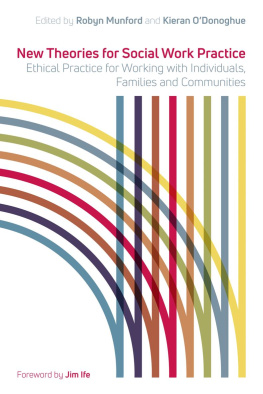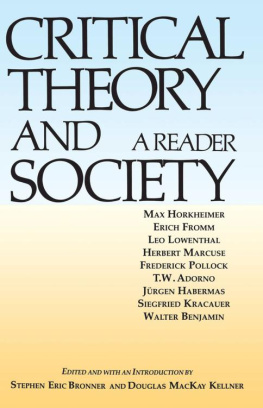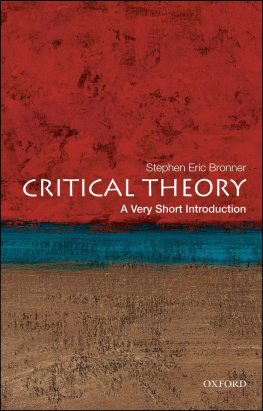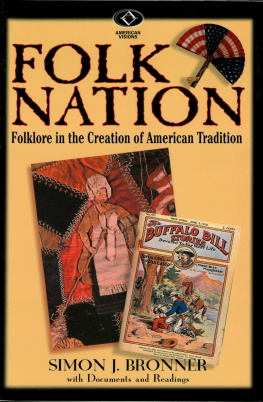The University Press of Mississippi is the scholarly publishing agency of the Mississippi Institutions of Higher Learning: Alcorn State University, Delta State University, Jackson State University, Mississippi State University, Mississippi University for Women, Mississippi Valley State University, University of Mississippi, and University of Southern Mississippi.
www.upress.state.ms.us
The University Press of Mississippi is a member of the Association of University Presses.
Copyright 2019 by University Press of Mississippi
All rights reserved
Manufactured in the United States of America
First printing 2019
Library of Congress Cataloging-in-Publication Data
Names: Bronner, Simon J., author.
Title: The practice of folklore: essays toward a theory of tradition / Simon J. Bronner.
Description: Jackson: University Press of Mississippi, [2019] | First printing 2019. | Includes bibliographical references and index. |
Identifiers: LCCN 2019006693 (print) | LCCN 2019019086 (ebook) | ISBN 9781496822642 (epub single) | ISBN 9781496822659 (epub institutional) | ISBN 9781496822666 (pdf single) | ISBN 9781496822659 (pdf institutional) | ISBN 9781496822628 (cloth) | ISBN 9781496822635 (pbk.)
Subjects: LCSH: FolkloreMethodology. | FolkloreClassification.
Classification: LCC GR40 (ebook) | LCC GR40 .B745 2019 (print) | DDC 398dc23 LC record available at https://lccn.loc.gov/2019006693
British Library Cataloging-in-Publication Data available
PREFACE AND ACKNOWLEDGMENTS
This book sets practice as a keyword of inquiry into how people keep tradition in mind as they navigate modern everyday life. Modifying practice with folk draws attention to repeated, variable social actions that might be perceived, or constructed, as traditional. All people engage in folk practices in a range of behaviors but probably are not fully aware of them because they often seem second nature or ordinary. They are important to discern and analyze, I argue, because they are the kinds of connotative, expressive activity that define cultural experience and provide special frames in which to deal with conflicts, paradoxes, joys, and anxieties regarding people in response to their social, political, and material environments. I also use modifiers of vernacular, popular, and elite practices to represent different kinds of practical or instrumental uses of, and symbolically significant names for, expressive behavior. Referring to folk as a cultural learning process and folklore as traditional knowledge, I follow the tension between behavioral repetition and variation that often represents a negotiation between the independent individual and myriad identities formed from social and organizational connections, including the immediate family and the ruling state. When people practicethat is, familiarize and symbolize certain actions for stylized repetitionthey often have in mind social and political outcomes from working in large modern societies noted for their individualism, which I seek to uncover and analyze. When practicing, they create a sense of belonging and purpose, often in concert, or in contest, with larger and smaller social, organizational units that declare their place in, and relationships to, the world.
For many scholars, the choice of practice as a keyword in the study of society and culture derives from Aristotles use of praxis as the deliberate action of a rational being and the association with practical from pragmatic philosophers such as George Herbert Mead and William James as instrumental, symbolic actions that have social and political consequences, not all of which are intended (Abrahams 1985; Bronner 1990). They are part of a scholarly legacy of linking the embodied expressiveness of doing to what people think. For example, to practice what you preach (ranking as one of the most popular proverbs in English along with practice makes perfect; see Mieder 1993, 4647) is to put words into action with the implication that ones behavior is tied to ethical intention. One would not want to be accused of being all talk (words) and no action and might be admonished that knowledge without practice is nothing. Seeking sources for apparently intentional actions as they affect others, people might dig deeper and ask what were you thinking? or what came over you? The answer to the question, including the feeling of frustrating inaction expressed in Im stuck in place (a rut) or I am at a standstill, might not be satisfying and the observer might reply, I have an idea of what was really on your mind!
These examples of folklore that colloquially express the complexities of modern life suggest a study of purposeful, socially shared behavior that has been called praxeological. It relies on behavioral observation coupled with historical inquiry to identify connotative behaviors within social frames of action, discern the purposes to which they are put, locate the traditions to which they are connected, and analyze the resulting consequences and ideas. A praxeological inquiry frequently involves social psychological analysis to find cognitive sources of these traditions and decipher the processes as well as outcomes of human actions. More so than other forms of inquiry, praxeological questions of meaningful praxis in human lives lead to explanations of cultural expressions that loom large in social movements and political arenas. People might perceive folklore as playful or ephemeral but it is exactly this characteristic that makes it crucial to record in the situations in which such expressions are allowed to be risky, edgy, protrusive, and even oppositional. I certainly consider other kinds of evidenceliterary, legal, and linguisticbut find that folklore brings out concerns of everyday life and cognitive processes especially well. It has frequently been overlooked in the academy precisely because of the masks it presents for its real purposes, the subaltern groups frequently associated with it, and its often earthy, even offensive content. Digging beneath the surface of quotidian expressions (or what the pragmatist philosophers described as symbolic gestures to underscore their embodiment), as I advocate with praxeological perspectives, uncovers what people from the cradle to the grave really have on their minds. Further, it leads to inquiry into tradition as a key to social process and the reproduction of culture, in addition to the rhetorical importance of recognizing, and naming tradition, as folklore and other terms. Indeed, the insistence on, and thinking with, folkloric behaviors that individuals practice, perceive, and construct as traditional are central to explicating the diverse ways lives are led and communities are formed.
In usage, practice often defines localized culture with the idea that this is the way we do things around here. On its flip side, it refers to the way those things are analyzed as part of, rather than apart from, theory, thus inviting the study of studying as praxis. The way we do things invokes the social basis of doing in practice as cultural and instrumental, that is, it has effects that participant-observers can analyze in the social reality of the abstracted, collective we around here or the field (environment). It is the kind of doing that communicates and creates; it is recognizable as a process toward an end. Practice as a term draws attention to the symbolic process of repeated actions to get at the meanings of expressive outcomes. In practice, the range and location of here and the identity of we are variable and raise an important question about boundaries and strategies of social action that participant-observers in the field, locations outside the self, strive to document and explain.






